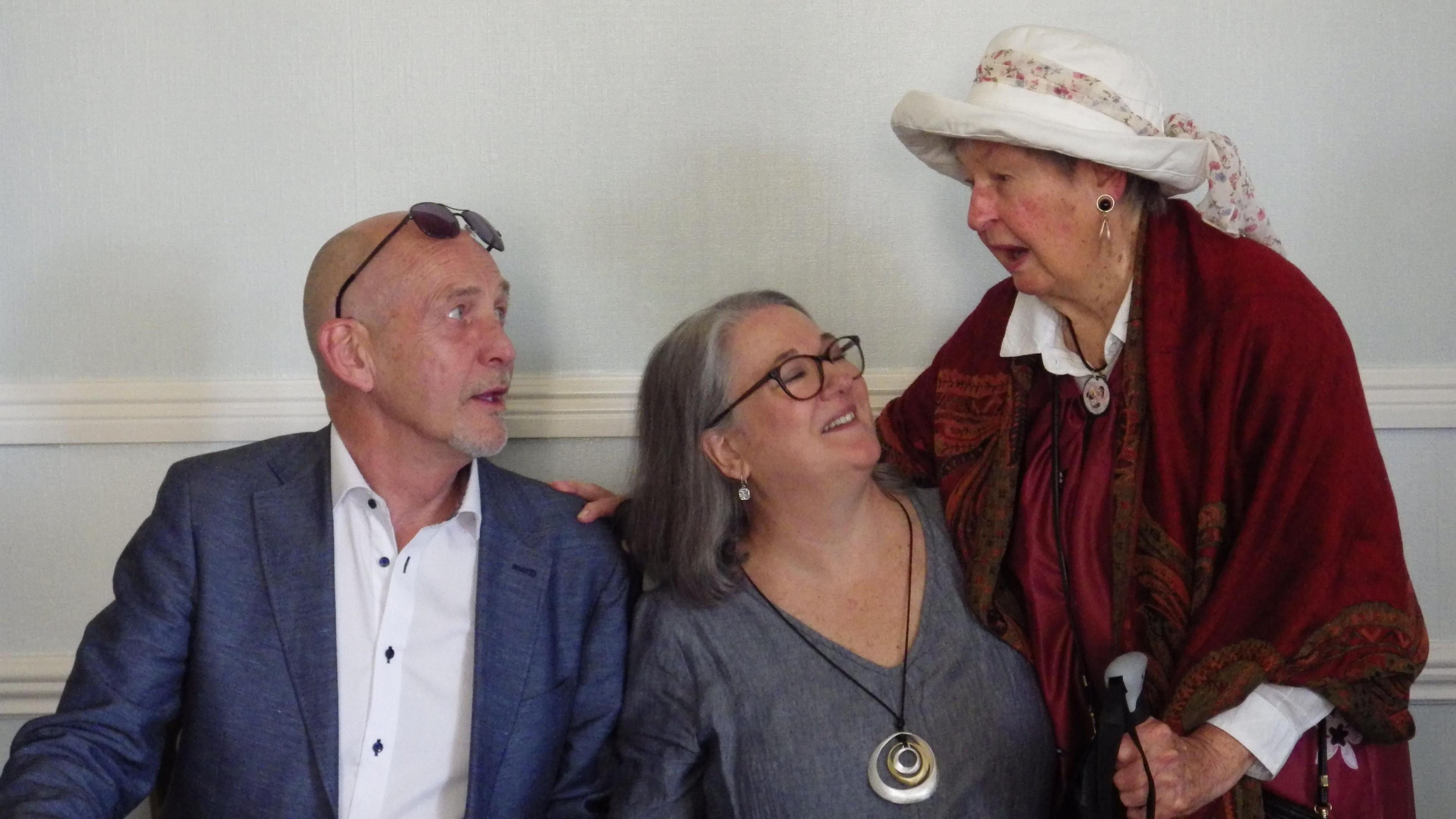'Being my husband's carer makes me feel invisible'
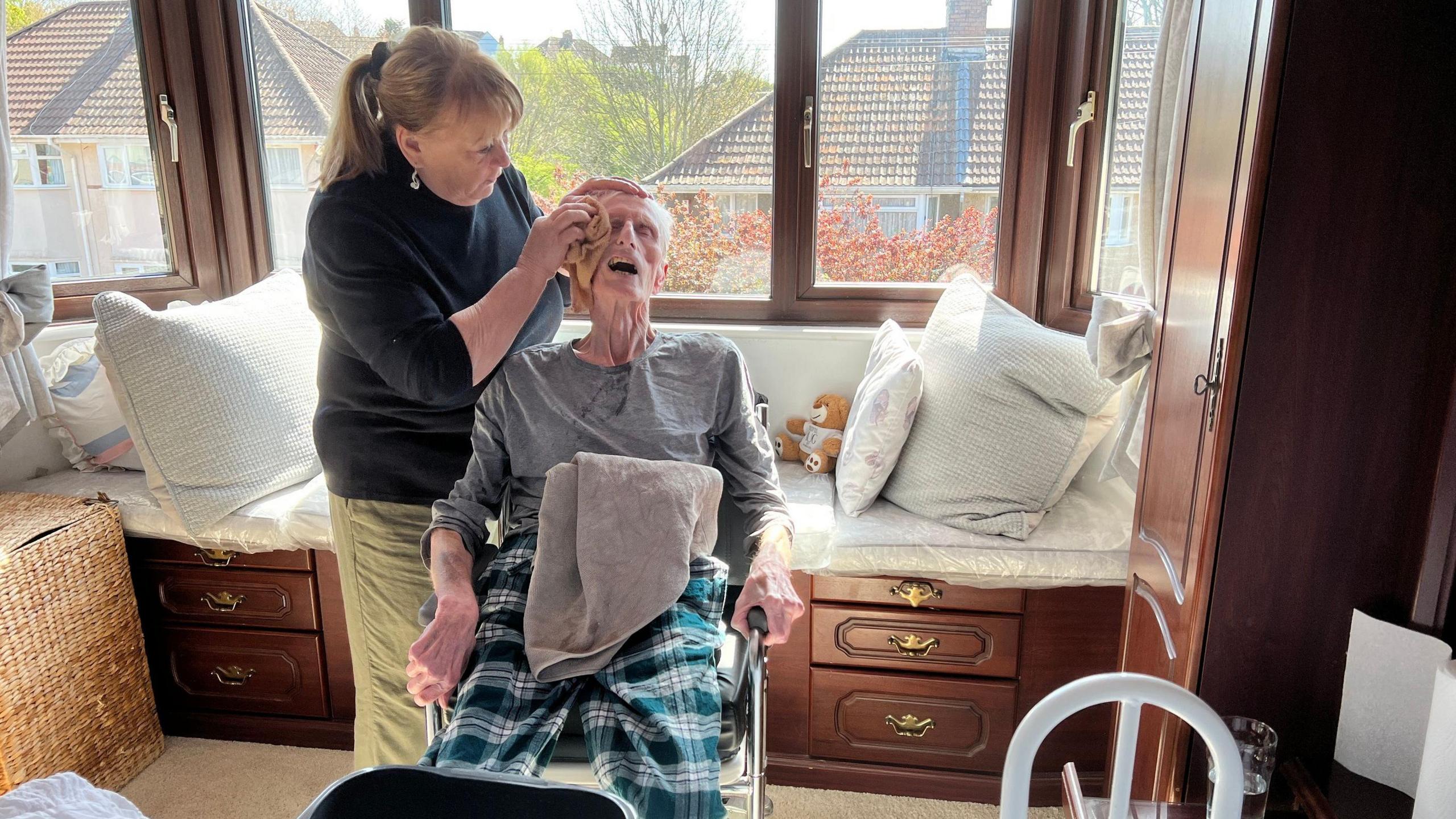
Dorothy Cook provides care for her husband Melvin who has a degenerative condition
- Published
A woman who is a full-time carer for her husband says she feels she has become "invisible" after not having a day off in 16 months and barely leaving the house for two years.
Dorothy Cook, 67, from Bristol, lives with her husband Melvin Cook, 78, who has ataxia, a degenerative brain and neurological disease which affects his mobility and communication.
Charity Carers UK said unpaid carers are increasingly suffering with poor mental health because they are unable to have a break. It is calling for more to be done to provide respite care.
The government said it recognised the "immense contribution of carers", adding the earnings threshold for Carer's Allowance is being increased by £2,000 a year.
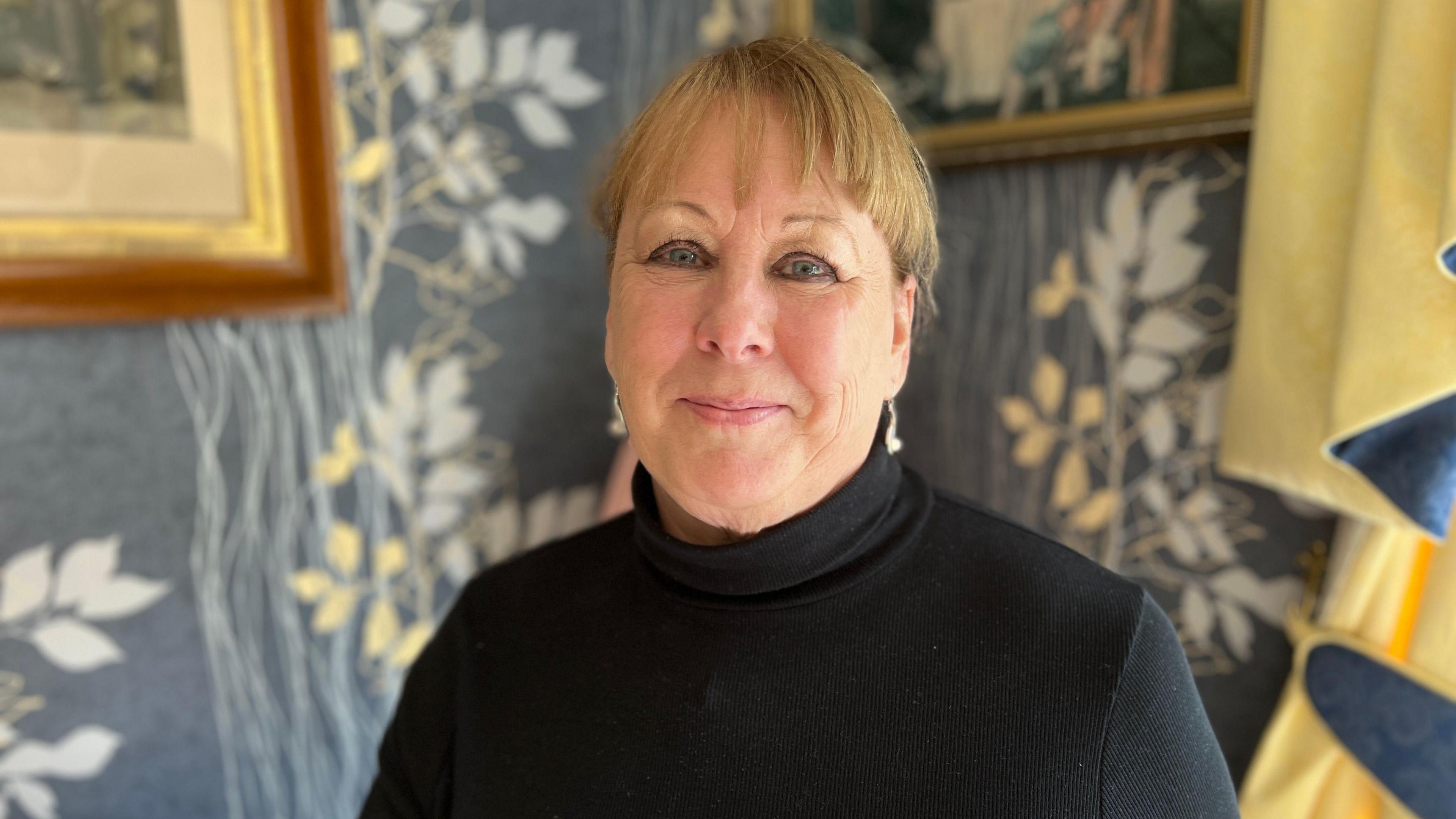
Mrs Cook gave up work to care for husband
Mrs Cook was an occupational psychologist and ran her own business for 27 years before giving up work to provide her husband of 49 years with around-the-clock care.
Mr Cook first started showing symptoms of ataxia about 16 years ago.
"It's come on so slowly we've adjusted," Mrs Cook said.
"I tried to juggle work and care for him as long as possible, but when I realised it wasn't safe for him to be left alone, about six or seven years ago, I gave up work."
Mr Cook was once a successful specialist engineer, helping to design the prototype nose for Concorde. But with his disease now in its late stages, he has been left unable to do anything without help.
"Although he's ended up bedbound and in this state, he's still Melvin inside," Mrs Cook said.
"Melvin's such a loving, kind person and very intelligent and he's always been so funny, energetic, on the go all the time. We used to go dancing and win competitions together."
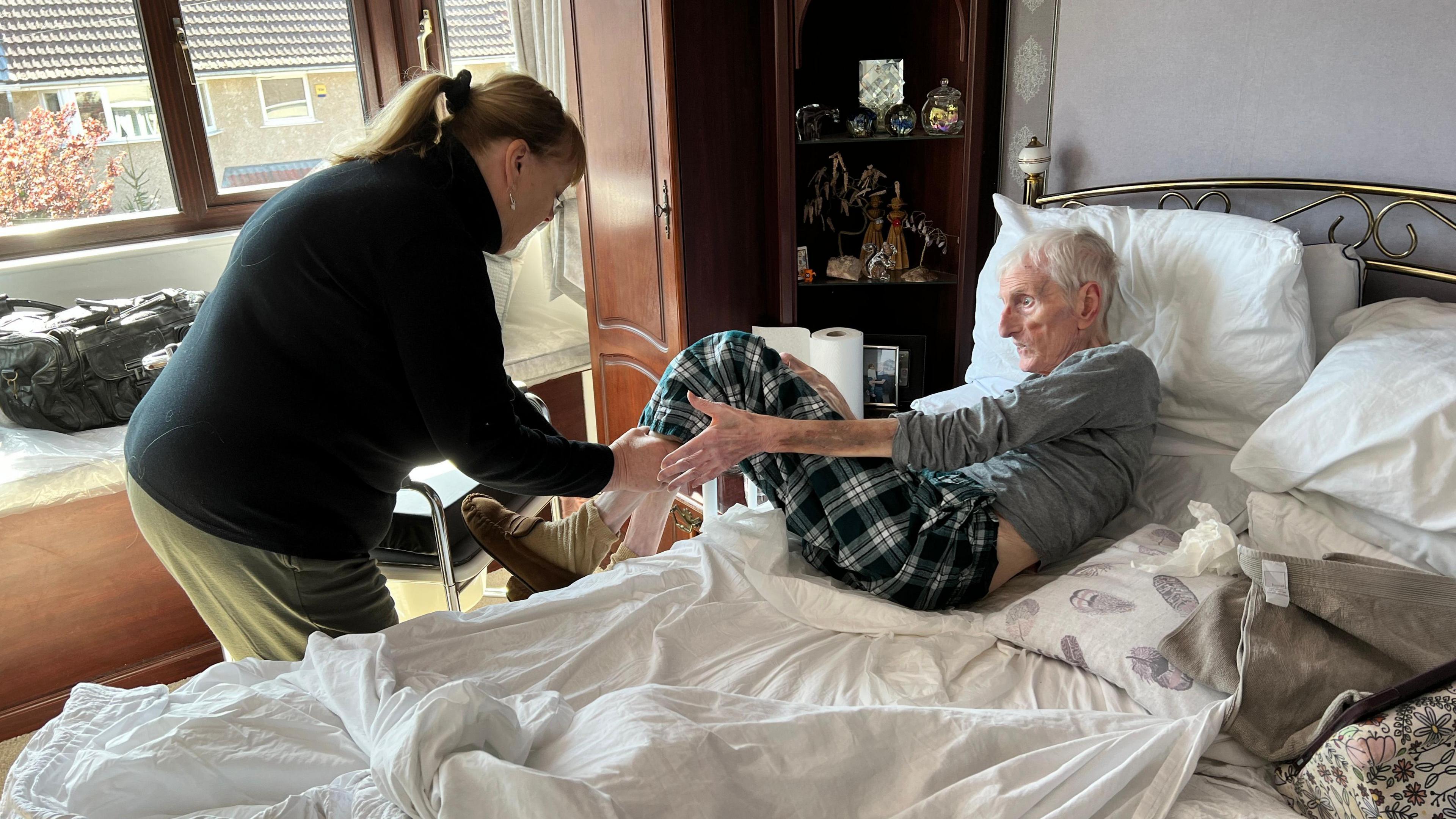
Mrs Cook said she will "keep going for Melvin"
Mrs Cook previously had some respite thanks to something called continuing care funding.
She said: "They paid for someone to come in three times a week so I could have a break and he could go into a care home for two weeks, but that ended two years ago.
"It was withdrawn because he'd outlived it.
"I was so angry, but I'm kind of resigned to it now."
Mrs Cook said being a full-time carer has a profound impact on her mental health and she described a lack of support for carers as "scary and frustrating".
"I'm in this house 24/7, I don't get to go out," she explained. "I haven't had a break for two years and I'm invisible to the outside world.
"Every day you get up, and it gets harder and harder but no-one wishes their husband to pass away to make this end.
"I will keep going for Melvin. He's the best husband and I will go forward knowing I did every single thing I could to make him happy."
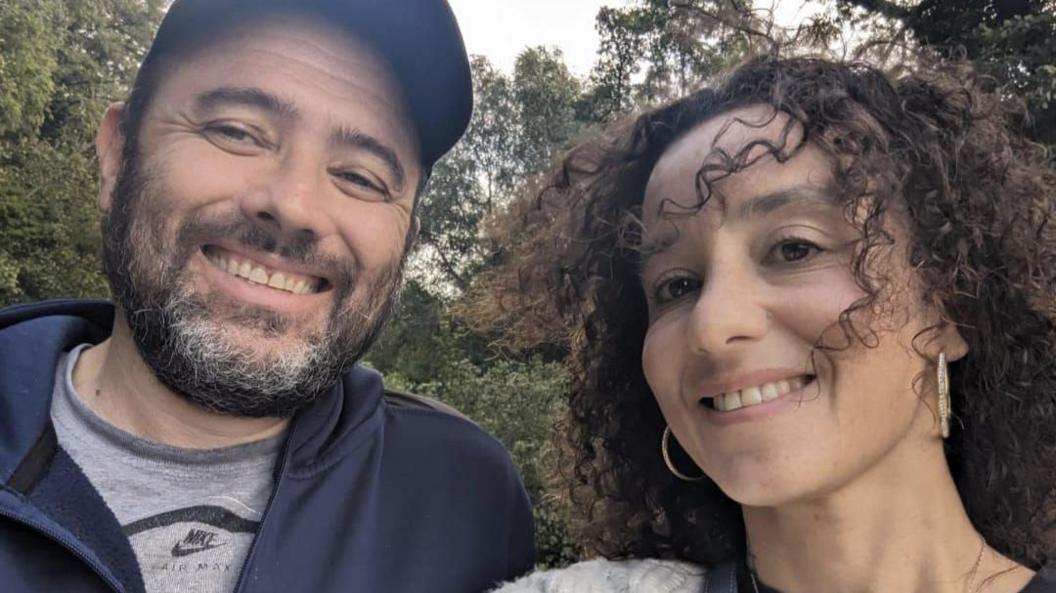
Sherene Snowdon has been caring for her husband, Lee, after he suffered a life-changing traumatic brain injury in March 2020
Sherene Snowdon, 42, juggles working from home in Newent, Gloucestershire, with caring for her husband Lee, 46, who sustained a brain injury five years ago. She has struggled with her health as a result.
"My weight went really low, my [vitamin] B12 went really low, my hair was falling out," she said.
"I wasn't getting any nutrition in my system because I was on survival mode, working full time, juggling life demands, and the children's needs."
Mrs Snowdon is urging other carers to get health checks, saying she was not aware GPs can provide them annually.
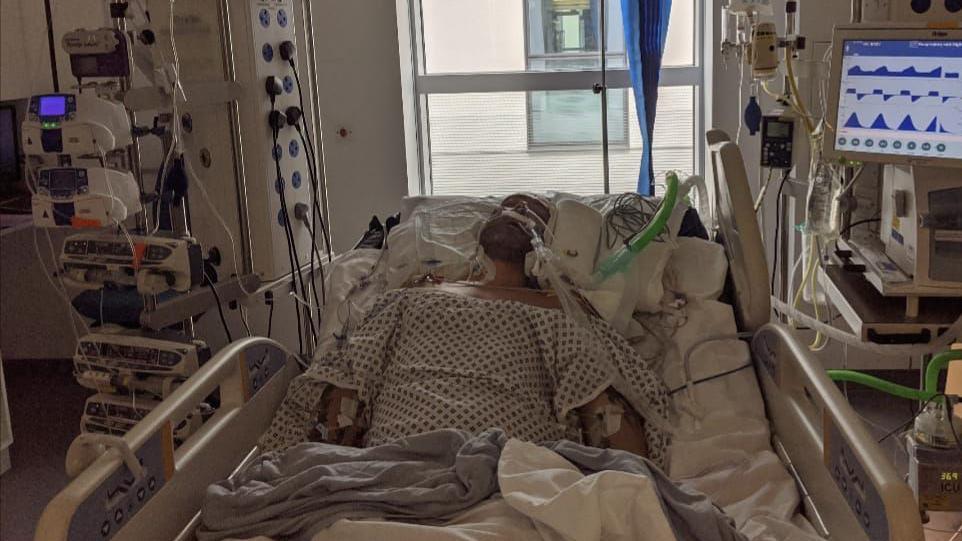
Mrs Snowdon receives no respite care for her husband, Lee
Mrs Snowdon also expressed her frustration at the lack of outside help, as she receives no respite care.
"How would the prime minister respond if over five million carers decided 'actually, no more'?" she said.
"Would it be that point that the local and national government decide to provide opportunities for support?"
Helen Walker, chief executive of Carers UK, said carers are at risk of "toppling over" from the long term impact of their unpaid roles.
She said: "If it continues to have this level of impact on their mental health and physical wellbeing, it's quite simple, the state will have to look after two people; the person they care for, and the unpaid carer."
Mrs Walker said while the government has commissioned an independent review into social care, the full report will not be available until 2028 and "the problem is now".
"There's not enough money in social care, there are massive vacancies in social care," she added. "So even if you're entitled to those respite breaks, you often will not get them."
'Immense contribution'
A government spokesperson said the increase in the Carer's Allowance earnings threshold is the biggest rise since its introduction in 1976.
They added: "The Better Care Fund, backed by £9bn, includes funding that can be used for unpaid carer support, such as short breaks and respite services.
"We are also making available up to £3.7bn extra for local authorities with social care responsibility in 2025-26, including an £880m increase in the social care grant, to help them fulfil their duties to carers, including delivering a wide range of support services."
Get in touch
Tell us which stories we should cover in Bristol
Follow BBC Bristol on Facebook, external, X, external and Instagram, external. Send your story ideas to us on email or via WhatsApp on 0800 313 4630.
Related topics
- Published19 November 2024
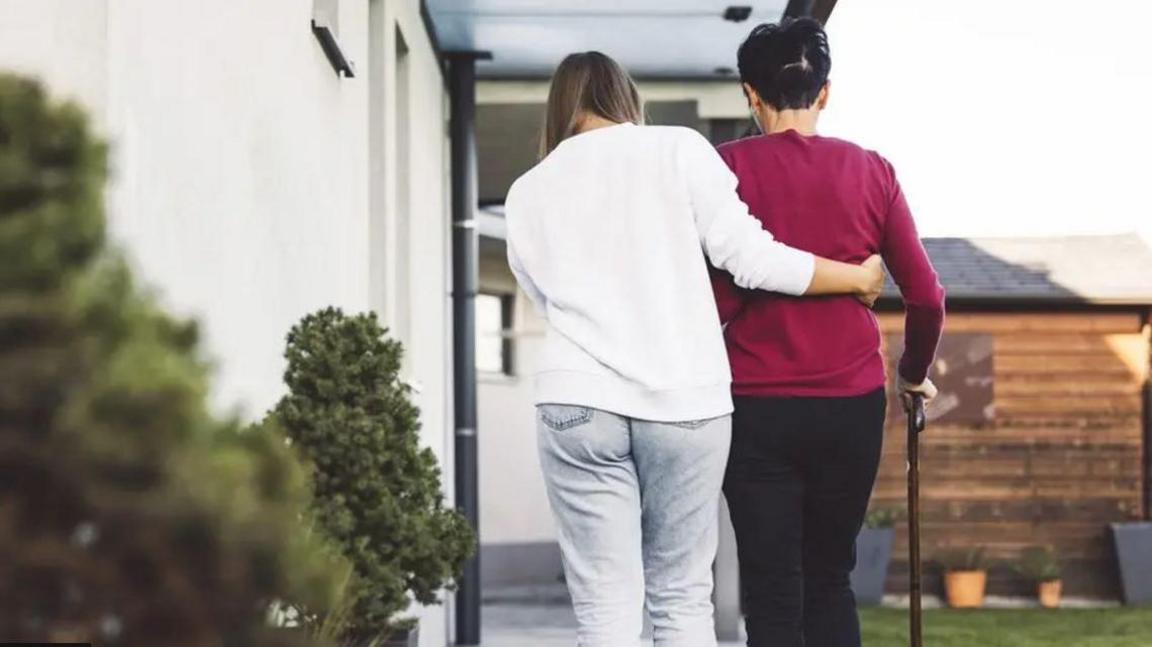
- Published21 June 2024
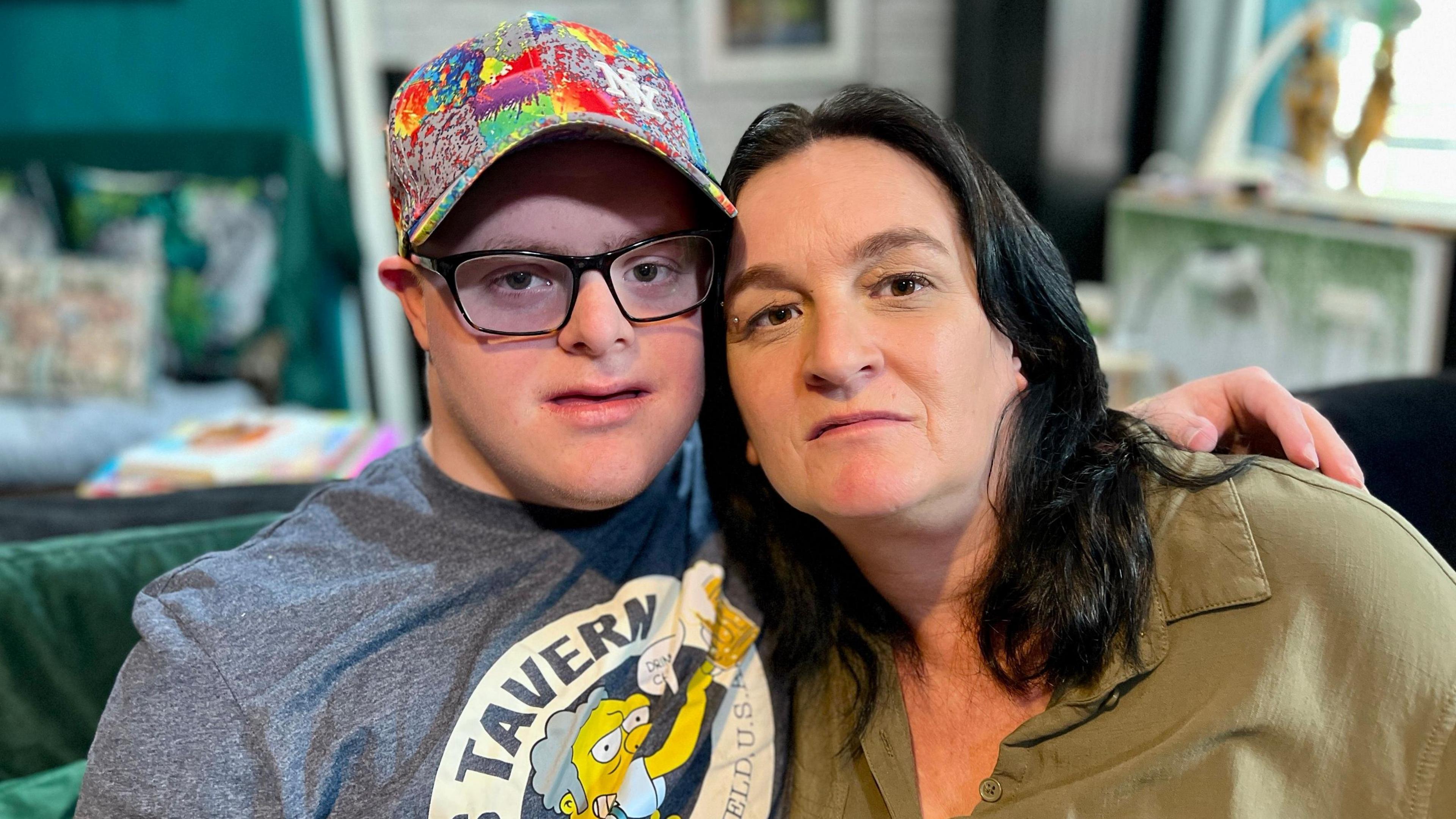
- Published17 June 2024
